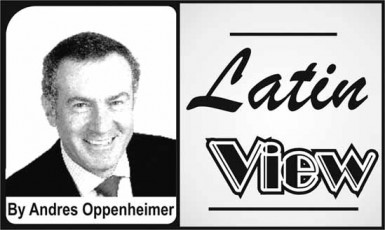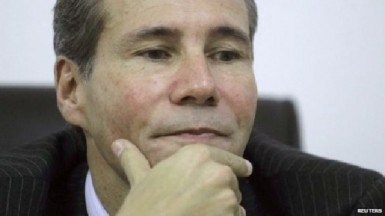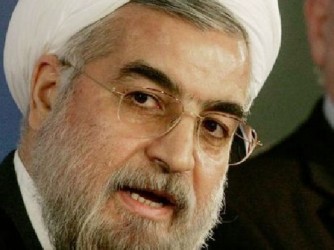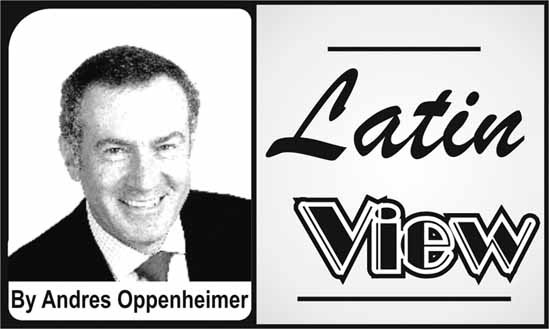Argentine prosecutor Alberto Nisman made headlines before his mysterious death last weekend by accusing President Cristina Fernandez de Kirchner of trying to cover up Iran’s role in the 1994 AMIA bombing in Buenos Aires, but there was another — more important — leader who was at the centre of the deceased prosecutor’s probe: Iran’s President Hassan Rouhani.
In several telephone conversations and e-mail exchanges I had with Nisman over the past three years, the prosecutor told me that Rouhani was among the top Iranian officials who had “participated in the decision” to bomb the AMIA Jewish community centre in Buenos Aires.

According to my notes from those conversations and a detailed e-mail that Nisman sent me on July1, 2013, Nisman said that Rouhani was a top member of a special committee within Iran’s VEVAK intelligence agency, known as Vijeh, which in 1994 was overseeing secret operations abroad, including the AMIA bombing. Iran has denied any responsibility for the bombing.
Shortly after Rouhani was proclaimed the winner of Iran’s elections on June 15, 2013, and the world media described the Iranian president-elect as a “moderate,” I had asked Nisman whether Iran’s then-president-elect was a suspect in his investigation into the AMIA bombing.
Nisman told me that Rouhani was not among the eight Iranian officials whose international arrest he had requested to Interpol in 2006, but that he was a member of the committee that had planned the attack. Nisman added that a key witness, a former Iranian VIVEK official named Abolghasem Mesbahi, had testified that Rouhani was a member of the Vijeh committee at the time of the bombing.
Nisman authorized me at the time to quote him as saying that “so far, there is no element in the (AMIA) file that would allow to link Rouhani to the attack.” But he added privately that he believed in Mesbahi’s testimony, and that as a member of the committee Rouhani was likely to have known of the AMIA bombing plan.
On July 1, 2013, Nisman emailed me part of Mesbahi’s testimony. Quoting from his 2006 request to Interpol, Nisman’s email said that Mesbahi “is a qualified witness” in the AMIA case “because of his background within VEVAK,” and “because of his close relations” with Iran’s intelligence officials.
It added that, according to Mesbahi, the Vijeh committee at the time of the 1994 bombing was presided over by Iran’s Supreme Leader Ali Khameini, and made up among others by Rouhani, (former President Akbar Hashemi) Rafsanjani, and (former Foreign Minister Ali Akbar) Valayati.


At the end of that email, Nisman added — as a personal comment apparently criticizing the fact that then-president-elect Rouhani was being described by the media as a “moderate” who allegedly had no connections with the AMIA terrorist attack — that “nobody is pointing out that Rouhani participated in the decision of the AMIA attack.”
According to my notes from an earlier telephone conversation with Nisman, on January 28, 2013 the former prosecutor told me that Fernández and Foreign Minister Hector Timerman had made “a political fix that has given Iran 100 per cent of what the Iranians wanted,” which was a commitment to get Interpol to lift its red alerts against top Iranian officials. For commercial or ideological reasons, Timerman “dropped his pants” before the Iranians, he added.
Argentina was seeking Iranian oil to solve its energy shortages, in exchange for a promise that it would seek to lift Interpol’s red alerts against Iranian officials, Nisman said in his January 14 formal accusation against Fernández and Timerman.
My opinion: There are serious doubts that Nisman committed suicide. In TV interviews and an email he sent me January 17, a day before he was found dead, in which he said he was “obviously interested” in doing an interview after his scheduled January 19 congressional testimony, Nisman seemed very self-confident. He had even left his maid a list of groceries she was supposed to buy at the supermarket the day after he was found dead.
Whatever happened to him, the best homage we can pay to Nisman is remembering that he was not only accusing President Fernández for the 2013 Argentina-Iran deal, but that his main target has always been Iran’s regime, including Rouhani — for the 1994 bombing in Buenos Aires.
At a time when the United States and other countries are negotiating a nuclear deal with the allegedly moderate Rouhani, it’s a good time to remember this.
© The Miami Herald, 2015. Distributed by Tribune Media Services.





